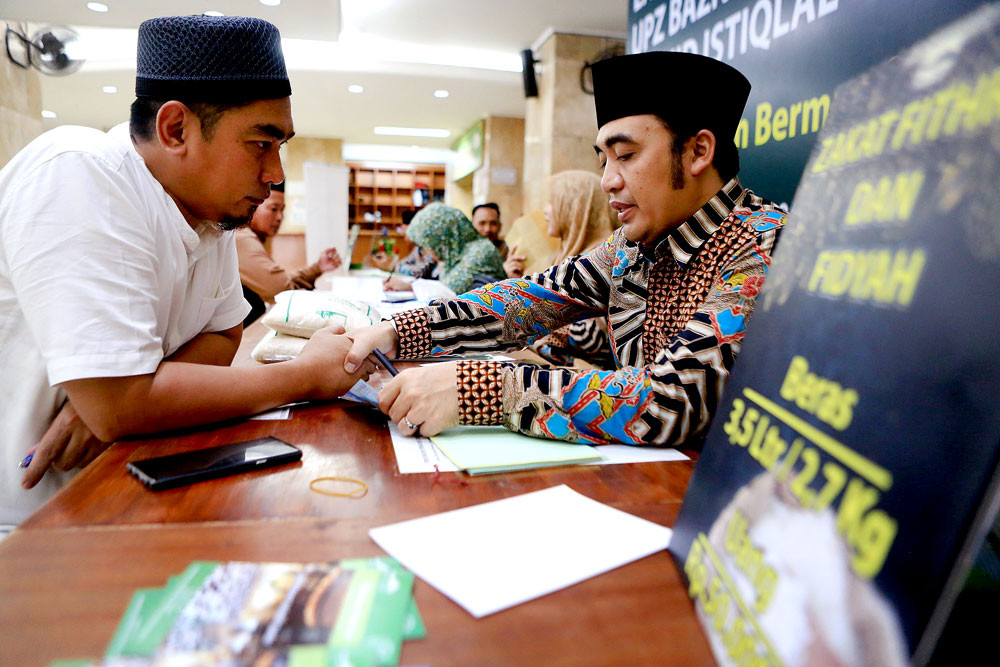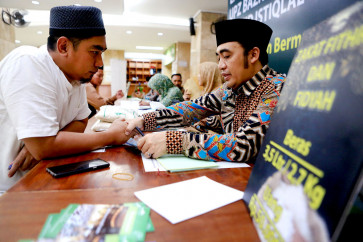Popular Reads
Top Results
Can't find what you're looking for?
View all search resultsPopular Reads
Top Results
Can't find what you're looking for?
View all search resultsHow digital innovation improves zakat collection
There are many kinds of charitable organizations in Indonesia. One that is prominent and with great potential is the zakat (tithes) institution. How would digitalization affect their business continuity?
Change text size
Gift Premium Articles
to Anyone
H
ere and now we see many sectors experiencing digitalization, from businesses harnessing digital technology to acquire new customers, to governments attempting to create more efficient bureaucratic systems. We also see such innovation bringing numerous benefits to businesses and governments, and their stakeholders. While digitalization from these two groupings has managed to bring favorable conditions to their business ecosystems, what about a third grouping — one that is commonly defined as a nonprofit or charitable or philanthropic organization?
There are many kinds of charitable organizations in Indonesia. One that is prominent and with great potential is the zakat (tithes) institution. How would digitalization affect their business continuity?
A recent survey conducted by Tech Trust on charity organizations in the United Kingdom in 2017 attempted to answer these questions. Charities that are digitally engaged are proven to gain more benefits compared to their less digital counterparts. Such benefits include increased donations, increased productivity and the ability to meet strategic goals. Being digitally engaged is also believed to overcome various challenges such as inefficiency, lack of transparency and lack of risk protection and/or management.
Therefore adopting technological innovation and being digitally engaged to maintain sustainability in the digital era has also become a necessity for zakat institutions.
As a country with the largest Muslim population in the world, Indonesia has huge potential in zakat — one of the five pillars of Islam. This potential is greatly influenced by the demographic transition, which is increasingly dominated by a working-age generation and the development of middle-class income.
According to the National Alms Agency’s Center for Strategic Studies (Puskas Baznas), overall zakat potential in Indonesia reached Rp 233.8 trillion (US$16.5 billion), equivalent to 1.72 percent of the gross domestic product in 2017. However, its realization was only Rp 6.2 trillion in 2017, confirming the chronic vast gap between the calculated potential amount of zakat and its realization.
One likely cause of this discrepancy is that there are still many muzaki (payers) who pay zakat directly to mustahik (recipients) without the intermediaries of zakat institutions, so the payment goes unrecorded. This might be derived from lack of trust between the targeted society and zakat institutions, regarding their professionalism and transparency of zakat fund management.


















